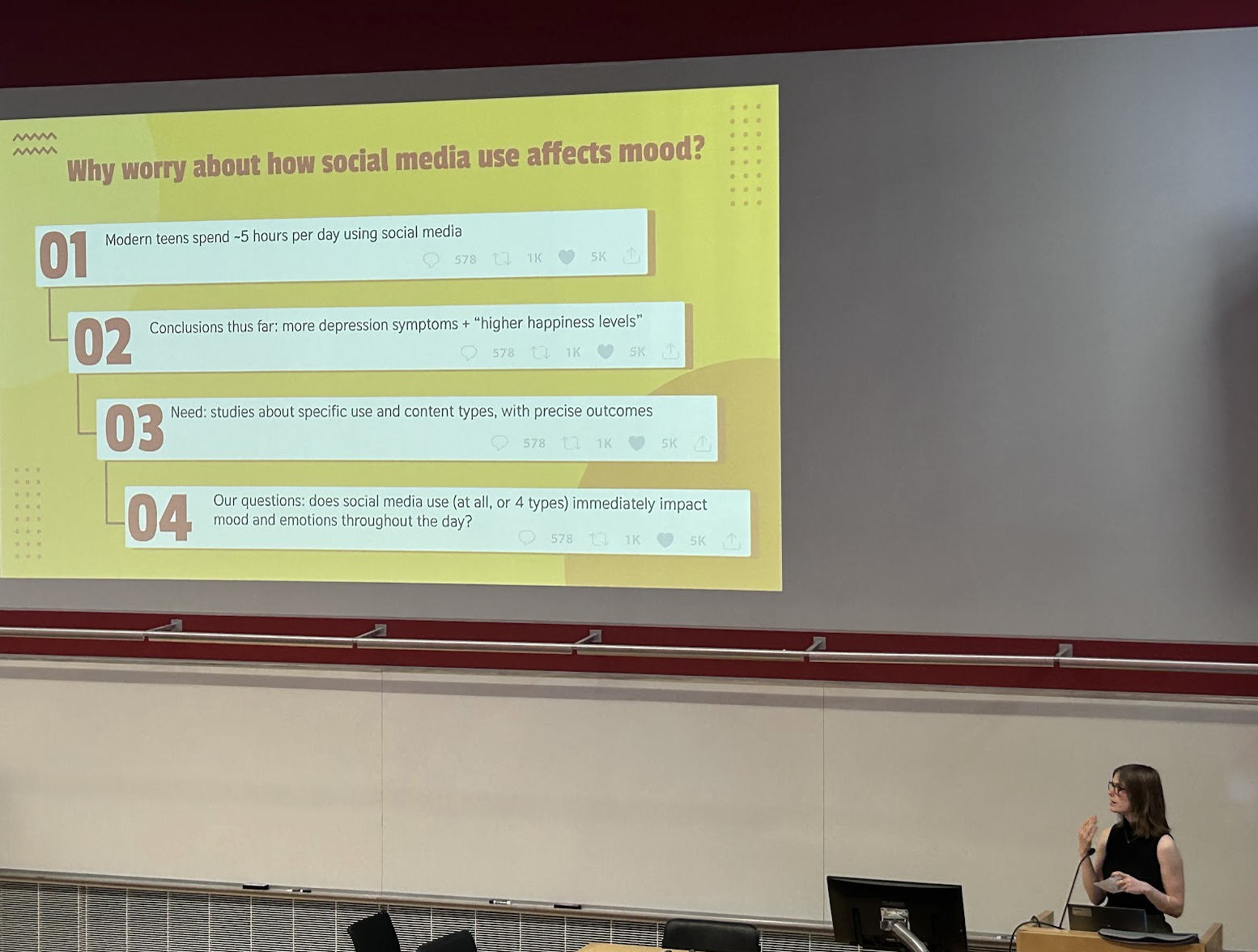Congratulations to Class of 2025 members Peter Graham, Irene Kwon, Clara Lee Molina, Naia Wolfenzon, Chloe Kurka, William Ryan Waite, Andrew Park, Taekmin Kenneth Kang, Makieda McKenzie, Vera Poyraz, Giselle Goldfischer, Megan Talikoff, and Lindsay Gould!
The honors students of the CoPsy department presented their theses—independent research projects—on Wednesday, April 23 in the Metcalf Auditorium. Speakers spanned concentrations of Behavioral Decision Sciences, Cognitive Science, Cognitive Neuroscience, and Psychology and shared work on themes ranging from pupillometry to mindfulness to artificial intelligence and the brain.
Dr. Elena Festa, the Honors Advisor, shared, “The Honors program offers a unique opportunity to support students as they move from being consumers of knowledge to producers of it. That transition is exciting to witness and to help facilitate.”
Festa, who has organized the program since 2014 with the exception of a single year of absence, also had three of her own students speaking at the symposium. “Seeing the breadth and quality of the work across the group made me feel proud not just of my own students, but of the program as a whole,” she added.
This is the first year the symposium featured a “lightning talk format,” Festa explained, which “kept the energy high and allowed students to really focus on the core message of their projects.”
In the process of applying for honors and conducting these projects, students have engaged with their advisor and their advisor’s lab, allowing them to collaborate with experts, merge what they have learned in their classes with the lab setting, and “participat[e] in a real research community,” as Festa explained.
Concentrators’ work spanned many mediums, from surveys to multi-day in-person experiments, and many populations: young children, adolescents, adults, older adults, and zebrafish.
Naia Wolfenzon ’25, whose capstone featured the impact of ‘emotion regulation in cognitive aging,’ reflected, “It's such an incredible experience to get to do things like this during your undergrad. I feel really lucky to work on a project, [to] design all steps of the process on my own and with the supervision of a mentor. I feel very lucky and also relieved to be done.”
This represents the final step before receiving an honors degree recognition; they submitted final thesis proposals earlier this week. In this process, they have developed research and statistical skills—including data analysis and scientific writing—alongside experience at every step of the experiment cultivation process. Alongside these skills, Festa added, “I hope they gain confidence in their ability to think critically, persist through challenges, and contribute meaningfully to the field.”
Festa shared, “The Honors program is excellent preparation for graduate work or research-intensive careers. Students learn how to frame a research question, conduct literature reviews, collect and analyze data, and situate their findings in a broader context. These are core competencies in psychology and neuroscience, whether students pursue clinical, academic, or industry paths. But even beyond that, the experience of independently managing a complex project helps build resilience, problem-solving skills, and intellectual independence.”
The structure of this capstone works to provide opportunities for mentorship, become familiar with project management, and “helps students see themselves as contributing members of the scientific community,” as Festa stated, as CoPsy seniors embark on the next chapter of their lives.
